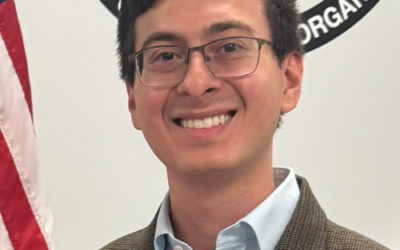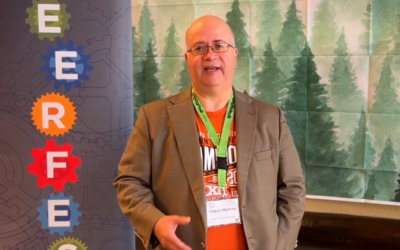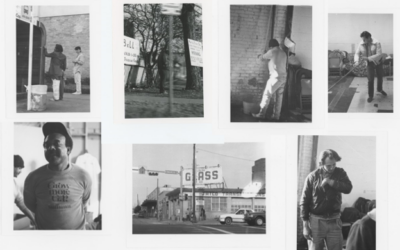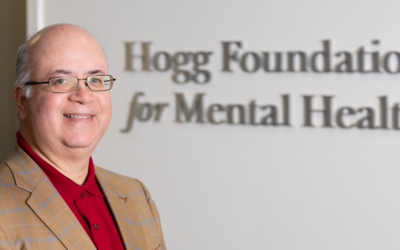Welcoming more than 350 enthusiastic participants from across Texas, the 2025 Robert Lee Sutherland conference took place on September 8 & 9 in San Antonio. Held over two busy days, the event included a half-day Policy Pre-seminar. Led by the Hogg Foundation policy leads Alison Mohr Boleware, Jason Castillo, and Maddie Garza, and attended by 250 participants, the Pre-seminar provided a summary of the 89th Legislative Session, opportunities for professional networking, and several learning sessions focused on building nonprofit organizations’ advocacy skills.
Elizabeth Henry, founder and policy consultant of Civic Strategies, LLC and Maddie Garza, LMSW, policy fellow at the Hogg Foundation, co-led the lived experience storytelling workshop, “Telling Your Story”, as part of the Rising Voices: Building Advocacy Skills track at RLS.
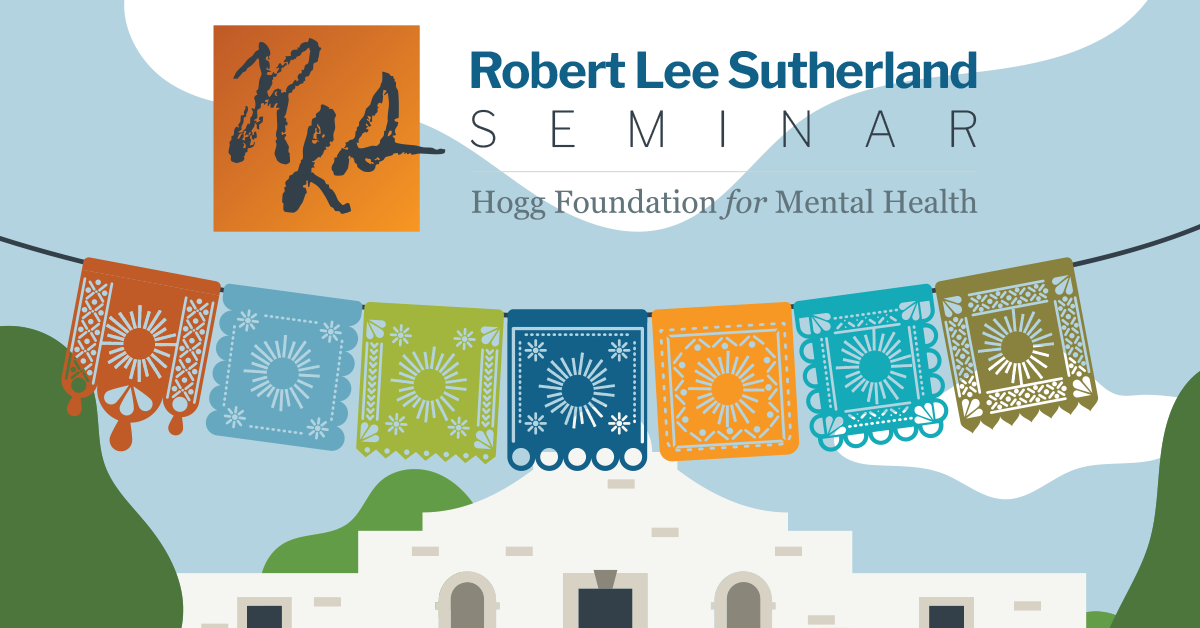
Stories “stick.”
“Stories personalize a complex issue,” said Maddie. “They center real-world issues through the voices of people impacted.”
When personal stories are shared with policymakers, not only do they draw attention to important issues, but they also resonate in ways that facts and data alone cannot. By highlighting transformation and solutions, stories can move policy.
How to Tell Your Story
The workshop included tips on how to develop a clear structure for telling a compelling story:
- Identify the problem you are trying to solve. Use everyday language and avoid technical language or jargon.
- Identify the desired outcome. Be clear about what you want to happen or what needs to be changed.
- Connect your lived experience to the problem. Explain why you are the right person to bring attention to this issue.
- Know your audience and what they care about. Connect your message to their priorities.
- Offer a solution. Emphasize what is “do-able” or what might be a reasonable compromise.
- Consider time constraints. Do not assume your time to speak is unlimited. If you are meeting with a policymaker’s office staff, you may have only 10-15 minutes. Committee testimony is usually limited to 3 minutes or less.
- Follow up and maintain lines of communication. A policymaker’s office staff are often the best entry points of contact. Ask how they would like to receive additional information (email, in-person, etc.). Be sure to relate your issue to a specific legislative bill if applicable.
Taking Care of Yourself
Another important consideration when sharing your story is prioritizing your own self-care. Maddie and Elizabeth recommended creating wellness-focused “guardrails” around your advocacy work. Making a wellness plan can help you avoid being retraumatized by reliving painful experiences. When you prioritize self-care, you can focus on highlighting solutions and hope.
“Avoid painful war stories. Focus on the path forward,” said Elizabeth. “You want to be remembered for how you’ve overcome the issue.”
You don’t have to be a researcher or academic to advocate effectively for legislation or policy change. As someone directly affected by an issue, you are a subject-matter expert.
Too often, legislation or policies are decided without the full input of people directly affected by the issue. Lived experience storytelling is a powerful and much-needed tool for advocacy.
Find more information about engaging in advocacy while using a trauma-informed lens to take care of yourself and your stories in the Lived Experience Storytelling: Primer for Advocacy toolkit.
Jason Castillo Named New Policy Specialist at Hogg Foundation
The Hogg Foundation for Mental Health is pleased to announce Jason Castillo as its new Policy Specialist.
The Purpose of Policy Work in a Divisive Time
Alison Mohr Boleware, LMSW, director of policy at the Hogg Foundation, and Lyssette Galvan, policy director for National Alliance on Mental Illness Texas, share insights on navigating the challenges and complexities of their work in the mental health policy field.
The Future of Recovery
Dr. Martinez’ involvement in the peer support and recovery movement has come to resonate with him tremendously.
Hogg and Homelessness: Hogg Foundation Programs Assisting Unhoused Texans, 1984-2024
As the landscape for people experiencing homelessness has changed, so too has the Hogg Foundation’s work to support the mental wellness of individuals, including those experiencing homelessness.
$2 Million Awarded to Train Mental Health Policy Fellows in Texas
The Hogg Foundation for Mental Health is excited to award $2 million in grant funding over two years for eleven nonprofit advocacy organizations to hire in-house policy fellows.
Policy Academy and Policy Fellows: Learning from the Past to Serve the Future
A statement by our executive director, Dr. Octavio N. Martinez, Jr., on an important change to the Hogg Policy Academy and Fellows initiative.

